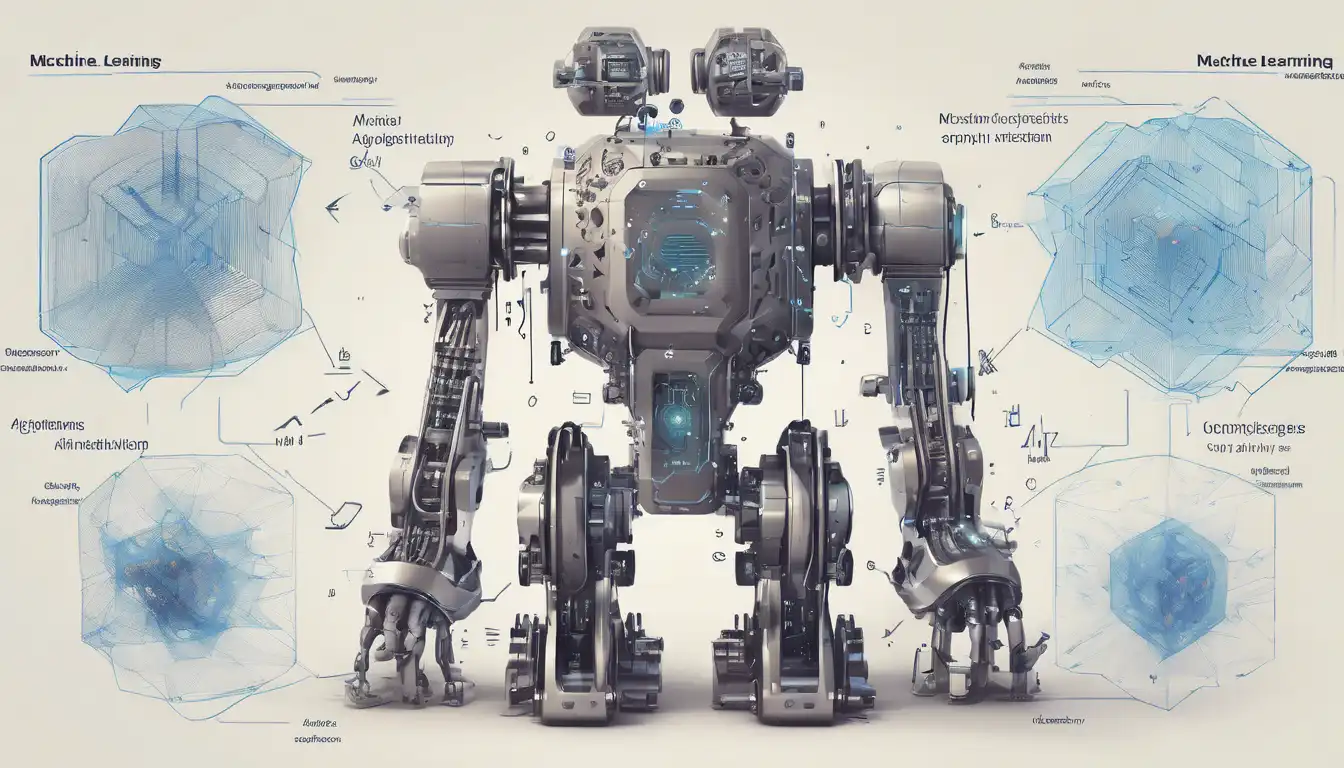Introduction to Machine Learning Algorithms
Machine learning algorithms are the backbone of artificial intelligence (AI) and data science. They enable computers to learn from data, identify patterns, and make decisions with minimal human intervention. This article simplifies complex machine learning algorithms, making them accessible to everyone.
Types of Machine Learning Algorithms
There are primarily three types of machine learning algorithms:
- Supervised Learning: Algorithms learn from labeled training data, helping to predict outcomes for unforeseen data.
- Unsupervised Learning: Algorithms identify patterns in data without any labels, useful for clustering and association tasks.
- Reinforcement Learning: Algorithms learn by interacting with an environment, using feedback from actions to improve performance.
Popular Machine Learning Algorithms Explained
Here’s a look at some of the most widely used machine learning algorithms:
- Linear Regression: Predicts a continuous outcome based on one or more predictor variables.
- Logistic Regression: Used for binary classification problems, predicting the probability of an event occurring.
- Decision Trees: A flowchart-like structure that helps in decision-making based on certain conditions.
- Random Forest: An ensemble of decision trees, improving prediction accuracy and control over-fitting.
- Support Vector Machines (SVM): Effective in high-dimensional spaces, ideal for classification and regression tasks.
- K-Nearest Neighbors (KNN): A simple algorithm that stores all available cases and classifies new cases based on a similarity measure.
- Neural Networks: Inspired by the human brain, capable of capturing complex patterns in data.
Choosing the Right Algorithm
Selecting the appropriate machine learning algorithm depends on several factors, including the size, quality, and nature of the data, the desired accuracy, and the problem’s complexity. For beginners, starting with simpler algorithms like linear regression or KNN is advisable before moving on to more complex ones like neural networks.
Applications of Machine Learning Algorithms
Machine learning algorithms find applications across various domains:
- Healthcare: Predicting disease outbreaks and patient diagnosis.
- Finance: Fraud detection and algorithmic trading.
- Retail: Customer segmentation and recommendation systems.
- Automotive: Powering self-driving cars.
- Entertainment: Content recommendation on platforms like Netflix and Spotify.
Conclusion
Machine learning algorithms are transforming industries by enabling smarter decision-making and automation. Understanding these algorithms is the first step towards leveraging their potential. Whether you're a beginner or an experienced professional, there's always more to learn in the ever-evolving field of machine learning.
For those interested in diving deeper, exploring data science and artificial intelligence can provide further insights into how these algorithms are applied in real-world scenarios.
